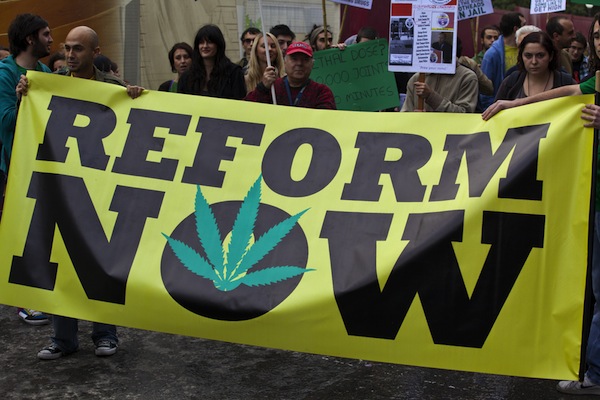Who Benefits Most from the War on Drugs?

 McCarthy's PhotoWorks / Shutterstock.com
McCarthy's PhotoWorks / Shutterstock.com
After voters legalized marijuana for recreational use in Colorado and Washington state, 2012 was considered, by many, to be a good year for supporters of comprehensive drug reform. As the debate over marijuana legalization continues, however, it is important to identify who benefits most from the war on drugs.
As the number of Americans who favor marijuana legalization continues to grow, why are current efforts to reform the status quo so contested? One explanation is that plenty of powerful groups benefit from the status quo and will continue to oppose efforts to legalize Cannabis, whether for medical purposes or recreational use. Tweet the news: Tweet
Multi-billion dollar industries like Big Alcohol and Big Tobacco, which currently provide the two most widely used legal drugs in the world, are the first opposition groups to come to mind.
Various studies indicate that people would likely use Cannabis as a substitute for alcohol which would endanger Big Alcohol's market share. The tobacco industry could face similar threats from a legal and government-regulated marijuana industry, especially since marijuana is considered to be less addictive and less cancerous than cigarettes.
Both industries have powerful lobbies that are able to influence legislators across the country as well as the finances to combat any legislation or proposition to expand legalization of Cannabis. California Beer and Beverage Distributors contributed $10,000 in 2010 to the campaign against Proposition 19, a ballot initiative that would have allowed local governments to regulate legal marijuana-related activities. Tweet it: Tweet
However, it has been speculated that Big Tobacco could change its position on the issue since the industry could invest in the production of Cannabis if the 2012 election results in Washington state and Colorado are just the beginning of a nationwide trend. Since the production of tobacco and marijuana would be similar, the adaptation of Cannabis would arguably be an easy investment to make.
Another powerful lobby highly benefiting from the current legal framework is the pharmaceutical industry. With $200 billion in annual revenues, Big Pharma has a lot to lose from legal medical marijuana. Nationwide surveys consistently find that people would rather use Cannabis as a substitute for prescription drugs, mostly because of the side effects of the drugs.
Pharmaceutical companies would also lose ground on the opening market for prescription drugs made from marijuana. The FDA could start the approval process for Sativex, the world's first drug developed from raw marijuana, by year's end. Sativex would be used to treat cancer pain.
Two major beneficiaries of the status quo that might not immediately come to mind, but adamantly oppose efforts to legalize marijuana, are law enforcement and prison systems.
With nearly fifty percent of federal inmates sentenced to prison on drug-related charges, maintaining the illegality of Cannabis is a business strategy for private prison corporations. Federal, state, and local law enforcement agencies rely on federal funding from Cannabis eradication and suppression programs, as well as money from drug seizures. Tweet at @NORML: Tweet
If the current trend continues, the support for more liberal Cannabis laws will likely increase in the coming years. It will be interesting to see how long special interest groups will be able to delay what a majority of the population wants.



